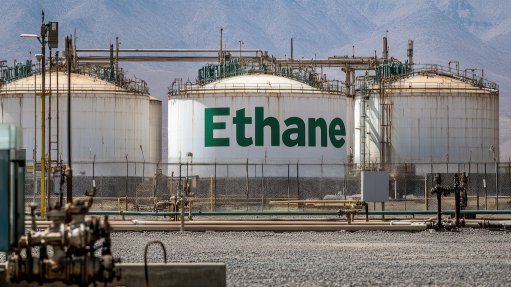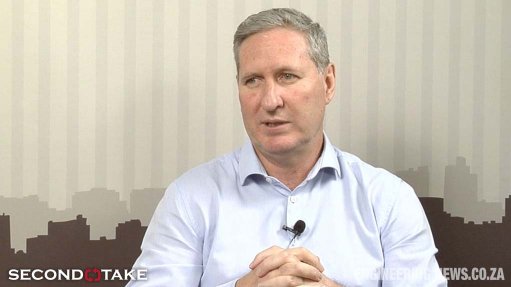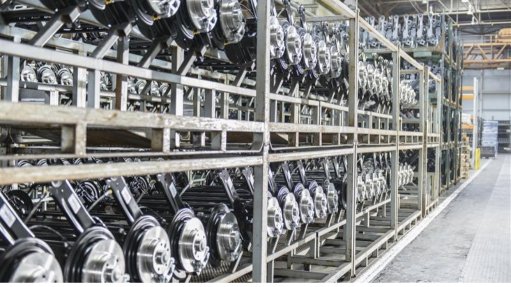The choice is ours - responsible sanitary waste disposal in South Africa
This article has been supplied and will be available for a limited time only on this website.
By Robert Erasmus, Managing Director at Sanitech
The regulatory framework surrounding the disposal of sanitary waste in South Africa paints a vague and often conflicting picture, blurred by legal ambiguities and ethical considerations. While the need for responsible waste management is evident, the road to achieving it is far from clear, which creates uncertainty and the risk of non-compliance for businesses.
An increasingly ambiguous framework
In South Africa, the foundation of waste management regulation lies in the National Environmental Management: Waste Act of 2008. While this Act gives very little specific guidance on sanitary waste, confusion stems from its subsequent amendments and drafts. A 2012 amendment took a hard-line approach, classifying sanitary waste as hazardous, which meant that businesses had to treat it as medical waste. In contrast, a draft circulating in 2018 took an opposing stance, by categorising it as general waste.
Without a clear definition, businesses remain in a precarious position, unsure of the correct disposal methods, while the practical implications of this ambiguity are considerable. In audit-driven environments, such as those with health and safety accreditations, sanitary waste is typically required by auditors to be treated as medical waste. This usually means incineration or autoclaving, followed by disposal as hazardous waste.
Further steps to complicate compliance
However, for small businesses and domestic settings, the 2012 amendment gives smaller business or domestic dwellings a threshold of approximately 5 kilograms per month, below which it is acceptable to dispose of as general waste. Although this scale-based classification feels like a step toward clarity, there is still a significant grey area for medium-sized businesses.
The 2018 draft's proposal, although it seemingly simplifies disposal, amounts to a major environmental and public health gamble. Allowing sanitary waste into general landfills risks pathogen leaching into soil and groundwater, potentially contaminating scarce resources. Additionally, the inevitable increase in flies and pests at landfill sites increases the threat of disease transmission, which will disproportionately affect vulnerable communities near such facilities.
Industry discrepancies - cost vs best practice
The waste management industry itself is caught up in this inconsistency and uncertainty. Some hygiene companies dispose of sanitary waste as general waste, while others choose hazardous waste landfills or incineration. The cost implications vary significantly, with incineration being more expensive than landfill disposal. However, incineration or autoclaving is recommended by the Department of Health and numerous publications as best practice, due to the inherent health risks associated with untreated sanitary waste.
Acknowledging an ethical responsibility
So what steps should businesses take to ensure they’re doing the right thing, even in the face of regulatory ambiguity? It is recommended that businesses in audit-driven sectors prioritise sanitary waste disposal as medical waste, ensuring compliance by obtaining disposal certificates from reputable waste management companies. Business owners must also approach the decision of sanitary waste disposal from an ethical perspective.
While there is a cost involved in doing the right thing, that cost cannot be considered prohibitive. When all is said and done, the decision rests with each business to carefully consider the environmental and health implications of their chosen disposal methods. While the law may be vague, the ethical need is clear, and businesses should choose responsible waste management over short-term cost savings.
Comments
Press Office
Announcements
What's On
Subscribe to improve your user experience...
Option 1 (equivalent of R125 a month):
Receive a weekly copy of Creamer Media's Engineering News & Mining Weekly magazine
(print copy for those in South Africa and e-magazine for those outside of South Africa)
Receive daily email newsletters
Access to full search results
Access archive of magazine back copies
Access to Projects in Progress
Access to ONE Research Report of your choice in PDF format
Option 2 (equivalent of R375 a month):
All benefits from Option 1
PLUS
Access to Creamer Media's Research Channel Africa for ALL Research Reports, in PDF format, on various industrial and mining sectors
including Electricity; Water; Energy Transition; Hydrogen; Roads, Rail and Ports; Coal; Gold; Platinum; Battery Metals; etc.
Already a subscriber?
Forgotten your password?
Receive weekly copy of Creamer Media's Engineering News & Mining Weekly magazine (print copy for those in South Africa and e-magazine for those outside of South Africa)
➕
Recieve daily email newsletters
➕
Access to full search results
➕
Access archive of magazine back copies
➕
Access to Projects in Progress
➕
Access to ONE Research Report of your choice in PDF format
RESEARCH CHANNEL AFRICA
R4500 (equivalent of R375 a month)
SUBSCRIBEAll benefits from Option 1
➕
Access to Creamer Media's Research Channel Africa for ALL Research Reports on various industrial and mining sectors, in PDF format, including on:
Electricity
➕
Water
➕
Energy Transition
➕
Hydrogen
➕
Roads, Rail and Ports
➕
Coal
➕
Gold
➕
Platinum
➕
Battery Metals
➕
etc.
Receive all benefits from Option 1 or Option 2 delivered to numerous people at your company
➕
Multiple User names and Passwords for simultaneous log-ins
➕
Intranet integration access to all in your organisation





















